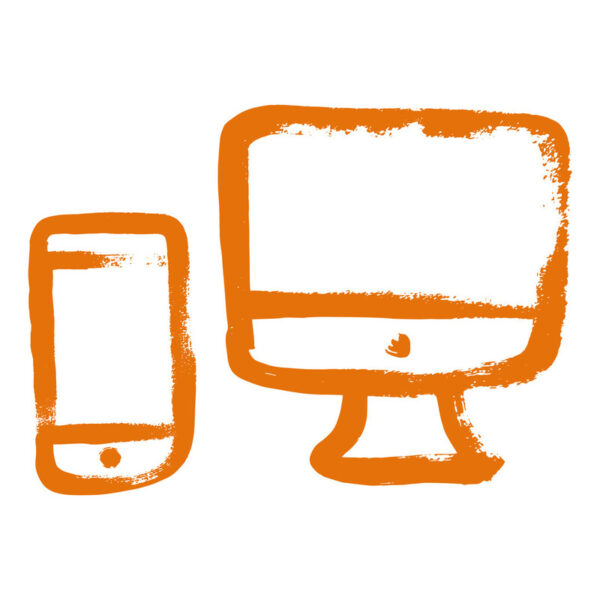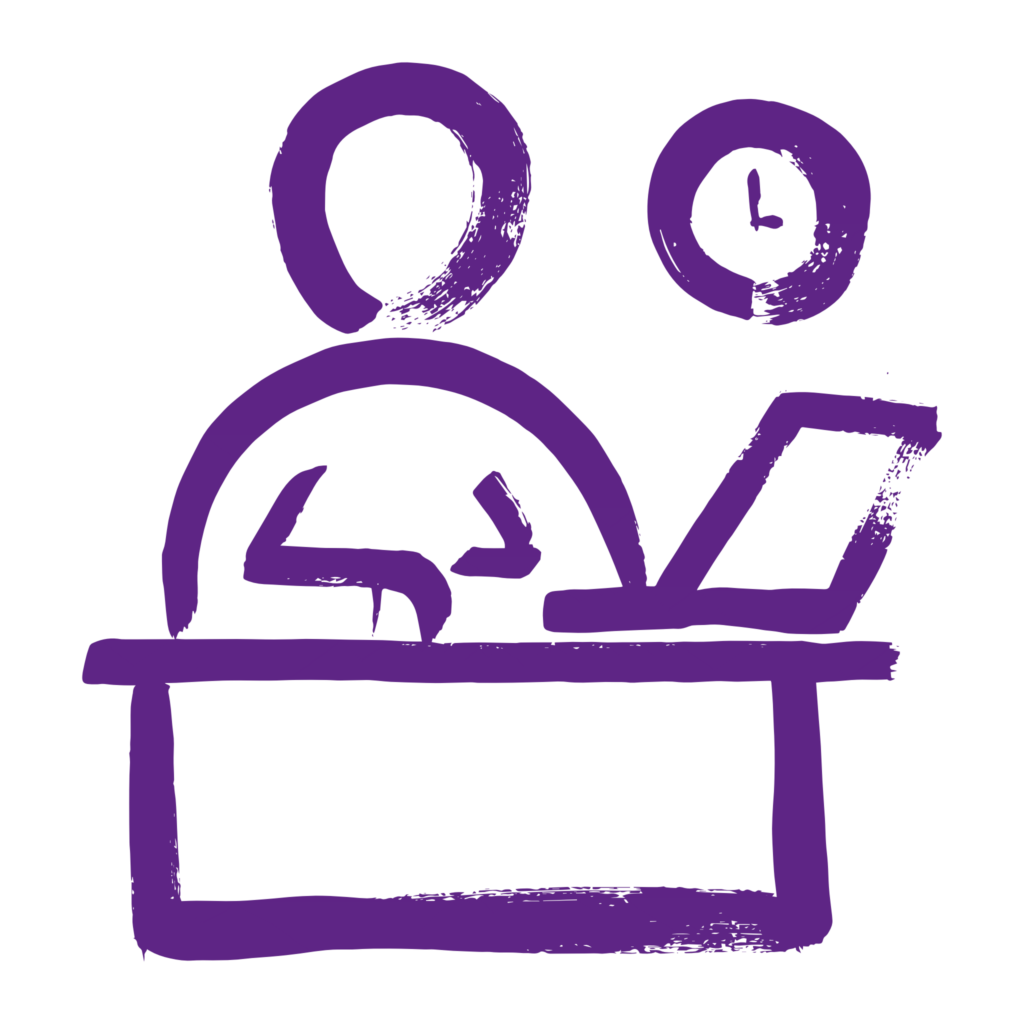With digital magnifiers, I could overcome barriers to employment
Patrick’s visual impairment means he’s reliant on magnification to read. Without his digital magnifier, it would be impossible for him to do his job. We talked to Patrick to find out more about this assistive technology.
Sense tech review: digital magnifiers

What is a digital magnifier?
If you imagine a digital screen hovering over a kind of tray – a bit like a computer tablet on a tall stand – that’s what my magnifier looks like. The tray is where you put your book or paperwork for the camera to see, then the screen above magnifies and displays the text in real-time. Mine has large buttons for adjusting the settings and focus, or you just move the paper along to read the next bit.
I’m describing my magnifier – the Clover Book Lite – but others are much larger, with screens the size of computer monitors. Others look more like a low desk lamp, with a camera looking down at anything placed under the ‘light’. You’d then connect this to a display screen or computer to see the magnified text.
Then there are all the extra options, like read aloud functions or outward facing cameras for following whiteboard presentations. There are magnifiers for all kinds of visual impairments.
My magnifier makes work possible

The main purpose of my magnifier is to support me at work. Sense Employment have been brilliant at supporting me to find jobs with employers that understand my needs. I’ve recently started a new job at an NHS appointments centre – the second job I’ve secured with support from Sense. They’ve provided me with two magnifiers, both of which are invaluable.
My role involves a lot of paperwork which, because of the nature of my visual impairment, is very hard for me to read unaided. Without a digital magnifier, it would be extremely difficult – impossible, really – for me to do my job. With it, I can show people that I’m able to work just as well as anybody else.
In the past, people might have read things aloud to me or written key information down in large letters. No one wants to work that way – it’d be especially problematic in my current field as I work with sensitive information. I need independence and privacy.
Doubling up my tech
I keep my main magnifier set up for me to quickly read paperwork arriving at my desk. But if I’m on the move, doing something like photocopying or scanning, I still need some kind of magnifier to support me.

A lot of people will just take a magnifying glass. These are great but limited. They’re only so strong and often can’t enlarge something enough for someone with a visual impairment.
What I’ve got now, to use alongside my desk magnifier, is a handheld device. It’s portable, it can zoom in on text and buttons, and I can even take photographs. I find this really useful as it saves me having to write out key information, like a reference number, anytime I need to look something up away from my desk. This would have been absolutely invaluable back in the days when my work centred around filing cabinets!
I need a device that doesn’t interrupt my flow
Back when I first started using digital magnifiers, the devices were quite bulky and heavy. If you were going out to a meeting or leaving the office for training, then you’d be lugging this big device with you – and a charger, it used to be. The model I have now is lighter and more compact. It folds away neatly and has a carrying handle, plus four hours of battery life, so the transportation and set up is really easy.

There aren’t many downsides to the current models that I can think of. I remember some magnifiers used to have moving trays, which were good because it meant you didn’t have to stop writing or reading to adjust the paper – you could slide it along as you went. That was great because it kept up with your flow, supporting your work rhythm.
My advice
Finding the right magnifier for you can be very hard as it’s not a widely known about piece of tech. During my 20 years of working with magnifiers, I’ve had some bad experiences and misguided recommendations.
You’ll need to make sure you do your own research – and speak to someone from Sense or RNIB. They’ll be able to help you explore your options and advise on what aid might be best for you. That’s where I’d always recommend people to go.
How Sense can help
If you’d like to get more information on assistive technology and devices like digital magnifiers, then get in touch with Sense information and advice. You can reach them by phone, email, post or through a BSL interpreter.
For anyone considering applying for work, seeking to change jobs or just looking for advice on workplace support, talk to Sense employment services. Get in touch and we’ll work out the right approach for you.

